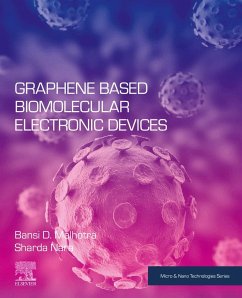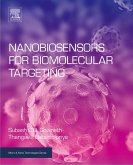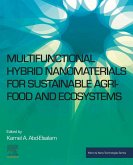Graphene Based Biomolecular Electronic Devices outlines the fundamental concepts related to graphene and electronics, along with a description of various advanced and emerging applications of graphene-based bioelectronics. The book includes coverage of biosensors, energy storage devices such as biofuel cells, stretchable and flexible electronics, drug delivery systems, tissue engineering, and 3D printed graphene in bioelectronics. Taking an interdisciplinary approach, it explores the synergy produced due to charge transfer between biomolecules and graphene and will help the reader understand the promising bioelectronic applications of graphene-based devices.
Graphene has applications in semiconductor electronics, replacing the use of traditional silicon-based devices due to its semi-metallic nature and tuneable energy band gap properties. The tuning of electron transfer with redox properties of biomolecules could potentially lead to the development of miniaturized bioelectronic devices. Thus, graphene, with its unique sensing characteristics, has emerged as an attractive material to produce biomolecular electronic devices.
Graphene has applications in semiconductor electronics, replacing the use of traditional silicon-based devices due to its semi-metallic nature and tuneable energy band gap properties. The tuning of electron transfer with redox properties of biomolecules could potentially lead to the development of miniaturized bioelectronic devices. Thus, graphene, with its unique sensing characteristics, has emerged as an attractive material to produce biomolecular electronic devices.
- Explains advanced and emerging techniques for creating graphene-based bioelectronic devices
- Outlines the fundamental concepts of graphene-based bio-integrated systems
- Addresses the major challenges in creating graphene-based bioelectronic devices on a mass scale
Dieser Download kann aus rechtlichen Gründen nur mit Rechnungsadresse in A, B, BG, CY, CZ, D, DK, EW, E, FIN, F, GR, HR, H, IRL, I, LT, L, LR, M, NL, PL, P, R, S, SLO, SK ausgeliefert werden.









